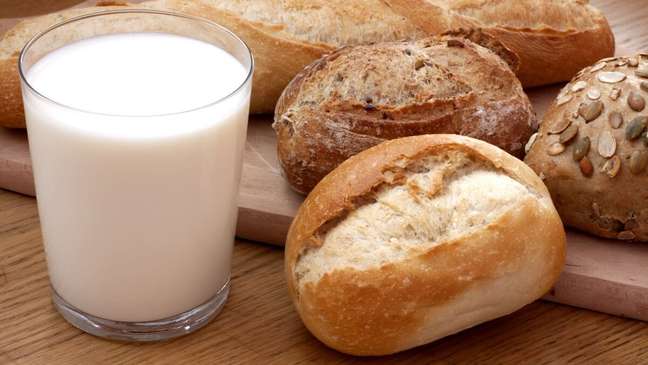Find out how to maintain a balanced diet all year round, without giving up on tasty ingredients

will eat fattening carbohydrates? drink a glass of Can milk be harmful to health? These and other doubts are usually common among people who decide to adopt a healthier eating lifestyle.
It is a fact that the food it is one of the pillars of health and also of physical composition. It is usually essential, both for those who want to lose weight and for those who want to increase muscle mass. However, contrary to what some people think, it is not necessary to suffer to have a good diet all year round.
And that is why, with the help of nutritionist Adriana Zanardo, we have separated five myths and truths about a truly healthy diet. Watch:
Carbohydrate fattening? 5 myths about food
1) Fattening of carbohydrates? Myth
Because it is a great source of energy, many believe that carbohydrates make you fat. However, what will cause your body to accumulate fat is the calorie surplus with little or no stimulus from physical activity.
According to the nutritionist, it is essential for the body and its absence can cause many metabolic disorders. Therefore, carbohydrate only makes you fat when it is ingested uncontrollably and exaggerated, just like any other nutrient.
2) Is milk bad for your health? It depends
According to Adriana, the milk on the market contains a multitude of artificial preservation components. Therefore, thinking about the quality of food, its excessive consumption can be harmful to health. But if your body tolerates the intake well, there’s no reason to worry. Just don’t overdo it.
Does the ideal food exist?
3) Should an “ideal dish” have different ingredients? Truth
For the nutritionist, a good meal should have the following foods: energy foods (cereals, grains and tubers); builders (meat, fish and legumes) and regulators (vegetables, foliage and legumes). The proportion may vary based on the purpose and condition of your body, but the general recommendation is: 50% regulators, 25% builders, and 25% energy.
4) Whole foods better? It depends
Most of the time, according to Adriana, this is true. Whole foods help improve the gut and body balance, thanks to the increased nutrient concentration. In addition to promoting energy in a lasting way. However, its consumption must be balanced, since, even in the whole version, foods contain calories, fats and sodium.
5) Are there any foods that make you lose weight? Myth
No food is able to act in isolation, neither against nor in favor of fat burning. According to the specialist, it is the daily and constant choices that lead the individual to obtain positive results, both in weight loss and in maintaining health.
Source: Adriana Zanardo, nutritionist and consultant at Jasmine Alimentos.
Source: Terra
Benjamin Smith is a fashion journalist and author at Gossipify, known for his coverage of the latest fashion trends and industry insights. He writes about clothing, shoes, accessories, and runway shows, providing in-depth analysis and unique perspectives. He’s respected for his ability to spot emerging designers and trends, and for providing practical fashion advice to readers.








